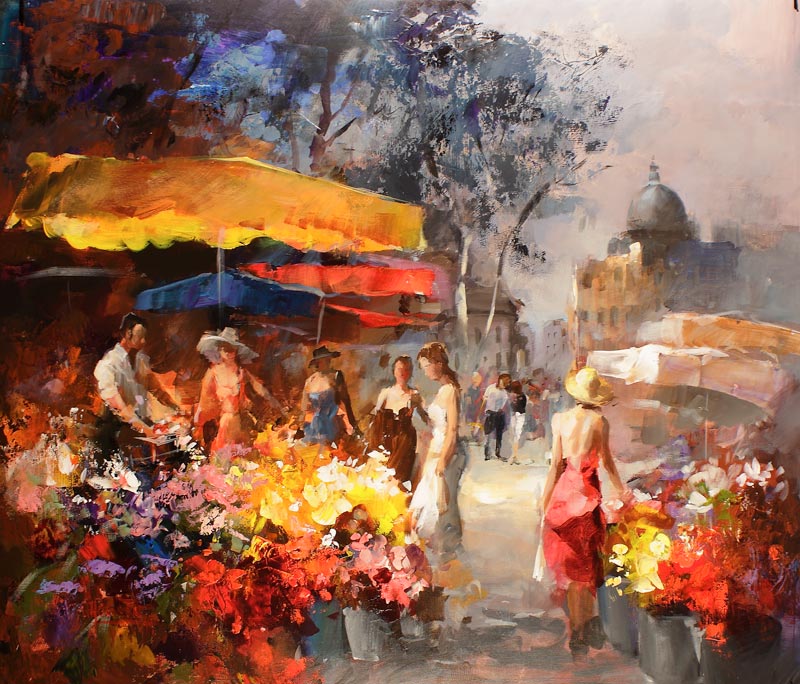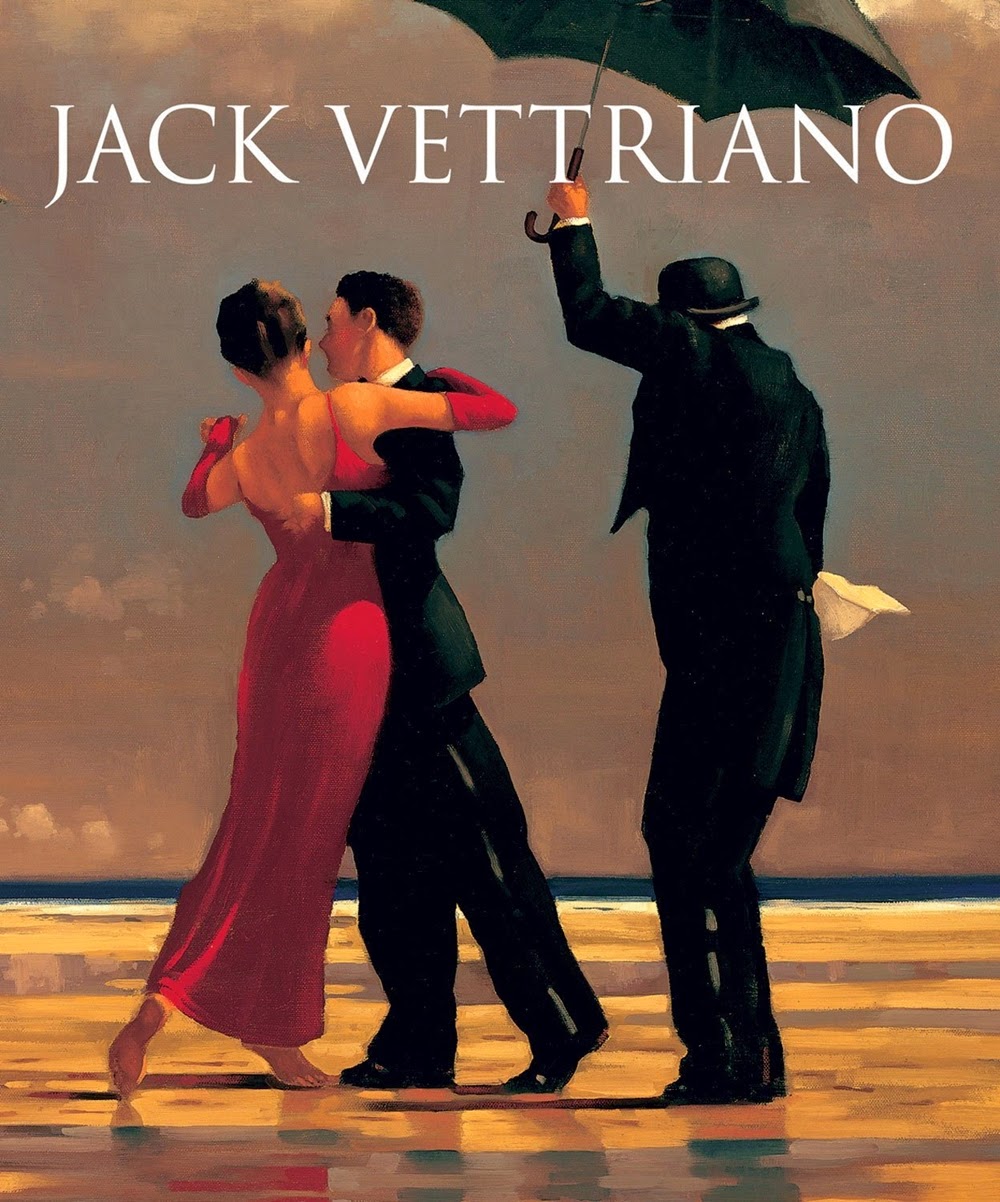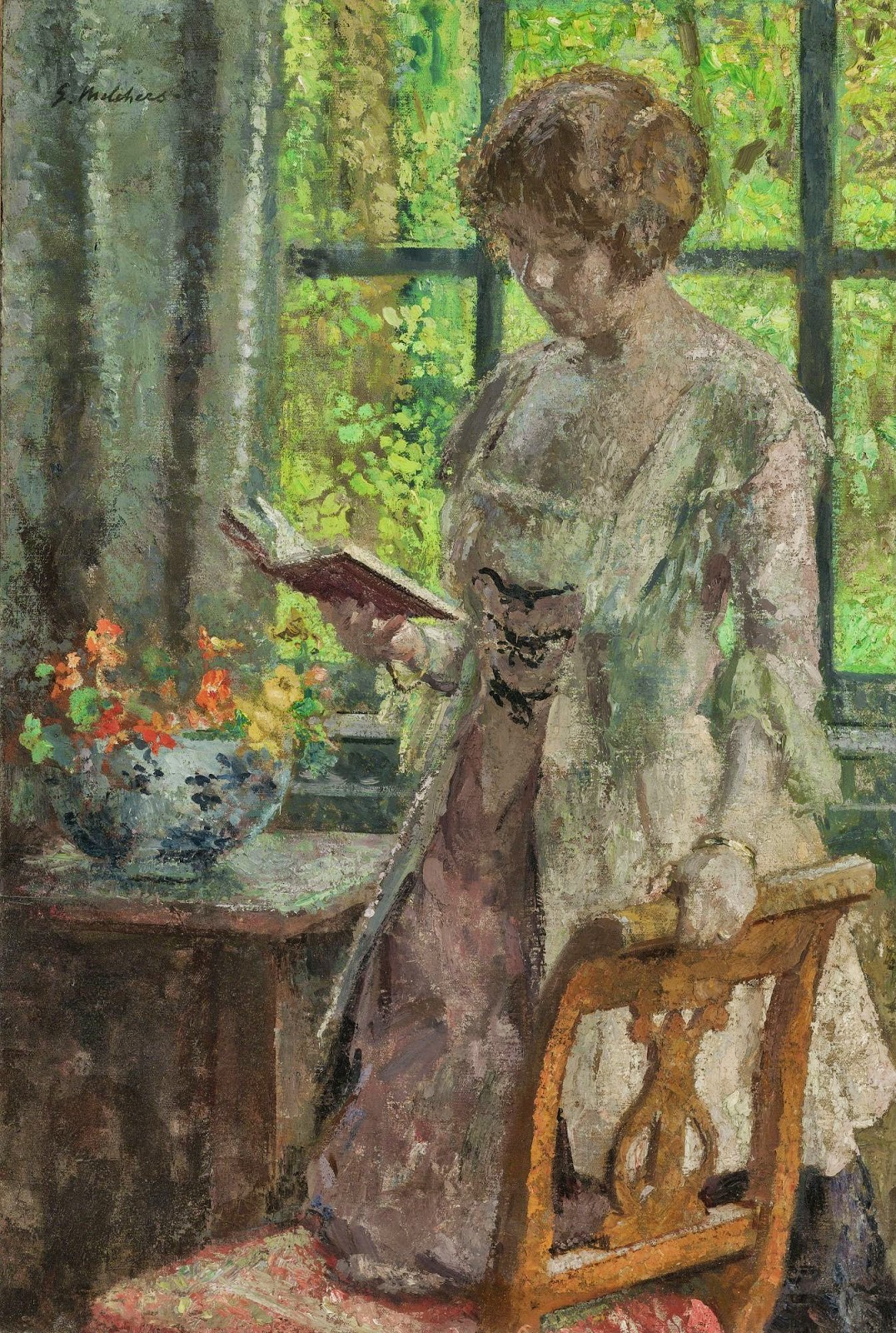Home » Post con etichetta Risultati di ricerca per Willem Haenraets.
Visualizzazione dei post in ordine di pertinenza per la query Willem Haenraets.. Ordina per data Mostra tutti i post
Visualizzazione dei post in ordine di pertinenza per la query Willem Haenraets.. Ordina per data Mostra tutti i post

Willem Haenraets, 1940 | Floral Still Life
Willem Haenraets is a Dutch painter known for his serene and romantic portrayals of landscapes, still lifes and cityscapes.
With soft colors, the artist conjures up a romantic world of beautiful illusion on his canvasses.
Willem Haenraets was born in Rotterdam on October 9, 1940 and his talent was discovered at an early age.

Willem Haenraets, 1940 | Impressionist painter
With soft colors, the artist conjures up a romantic world of beautiful illusion on his canvasses. Hollandaise painter Willem Haenraets was born in Rotterdam and his talent was discovered at an early age.
Haenraets was just 16 when he started his training at the academy in Maastricht, which he followed with further education at the Antwerp art academy.
Granted a scholarship for talented students, he received his artistic polish as a master craftsman student of the renowned professors Sarina and Vaarten.
Haenraets’ creations are evidence that the great tradition of the Belgian-Dutch school has received a flourishing sequel. The old masters certainly would have given him a nod of approval.

I giardini idilliaci di Willem Haenraets
Willem Haenraets è nato a Rotterdam il 9 ottobre 1940 ed il suo talento è stato scoperto in tenera età.
Haenraets aveva solo 16 anni quando iniziò la sua formazione all'Accademia di Maastricht, ad cui seguì un ulteriore percorso di studi presso l'Accademia d'arte di Anversa.
Grazie ad una borsa di studio per studenti di talento, acquisì la sua maturità artistica come allievo maestro dei rinomati professori Sarina e Vaarten.
.jpg)
Willem Haenraets, 1940 | Romantic lovers
Willem Haenraets was born in Rotterdam on October 9, 1940 and his talent was discovered at an early age.
When he was 16 years old, he started his education at the Academy of Arts in Maastricht.
Four years later he obtained a scholarship from the Belgian Government to study at the National Institute for Fine Arts in Antwerp, in the Master class of professor Sarina (Atelier Opsomer) and professor Vaarten.

Impressionist Artists | Sitemap
Claude Monet | Meules, 1891 | Sotheby's
"Impressionism is only direct sensation. All great painters were less or more impressionists. It is mainly a question of instinct, and much simpler than (John Singer) Sargent thinks".
- Claude Monet (1840-1926)
"Ho avuto il solo merito di aver dipinto direttamente di fronte alla natura, cercando di rendere le mie impressioni davanti agli effetti più fuggevoli, e sono desolato di essere stato la causa del nome dato ad un gruppo, la maggior parte del quale non aveva nulla di impressionista".
- Claude Monet (1840-1926)

Frida Kahlo: "Dipingo i fiori così non moriranno"
"I fiori della primavera sono i sogni dell'inverno raccontati, la mattina, al tavolo degli angeli".
Khalil Gibran
Pierre Auguste Renoir 1841-1919
"Chi cerca di possedere un fiore, vede la sua bellezza appassire, ma chi lo ammira in un campo, lo porterà sempre con sé.
Perché il fiore si fonderà con il pomeriggio, con il tramonto, con l'odore di terra bagnata e con le nuvole all'orizzonte".
Paulo Coelho

17th century Artists | Sitemap
The 17th century was the century that lasted from January 1, 1601, to December 31, 1700, in the Gregorian calendar.
It falls into the Early Modern period of Europe and in that continent (whose impact on the world was increasing) was characterized by the Baroque cultural movement, the latter part of the Spanish Golden Age, the Dutch Golden Age, the French Grand Siècle dominated by Louis XIV, the Scientific Revolution, and according to some historians, the General Crisis.
The greatest military conflicts were the Thirty Years' War, the Great Turkish War, and the Dutch-Portuguese War.
It was during this period also that European colonization of the Americas began in earnest, including the exploitation of the silver deposits, which resulted in bouts of inflation as wealth was drawn into Europe.


Dutch Art History and Sitemap

Dutch art describes the history of visual arts in the Netherlands, after the United Provinces separated from Flanders.
Earlier painting in the area is covered in Early Netherlandish painting and Dutch and Flemish Renaissance painting.
The history of Dutch art is dominated by the Dutch Golden Age painting, mostly of about 1620-1680, when a very distinct style and new types of painting were developed, though still keeping close links with Flemish Baroque painting.

French Art History and Sitemap
French art consists of the visual and plastic arts (including French architecture, woodwork, textiles, and ceramics) originating from the geographical area of France.
Modern France was the main centre for the European art of the Upper Paleolithic, then left many megalithic monuments, and in the Iron Age many of the most impressive finds of early Celtic art.
The Gallo-Roman period left a distinctive provincial style of sculpture, and the region around the modern Franco-German border led the empire in the mass production of finely decorated Ancient Roman pottery, which was exported to Italy and elsewhere on a large scale.
Pierre-Auguste Renoir | Jeune fille en rose dans un paysage, 1903

British Art History and Sitemap
The Art of the United Kingdom refers to all forms of visual art in or associated with the United Kingdom since the formation of the Kingdom of Great Britain in 1707 and encompass English art, Scottish art, Welsh art and Irish art, and forms part of Western art history.
During the 18th century Britain began to reclaim the leading place England had played in European art during the Middle Ages, being especially strong in portraiture and landscape art.

Collection of Quotes, Poems and Literature | Sitemap
• Faccio sempre ciò che non so fare, per imparare come va fatto.
• Non è tanto il linguaggio del pittore che si deve sentire, quanto quello della natura.
• Ciò che desidero, è che tutto sia circolare e che non ci sia, per così dire, né inizio né fine nella forma, ma che essa dia, invece, l'idea di un insieme armonioso, quello della vita.
• Così il pennello sta alle mie dita come l'archetto al violino e assolutamente per mio piacere.

20th century Art History and Sitemap
Twentieth-century art - and what it became as modern art - began with modernism in the late nineteenth century.
Nineteenth-century movements of Post-Impressionism (Les Nabis), Art Nouveau and Symbolism led to the first twentieth-century art movements of Fauvism in France and Die Brücke ("The Bridge") in Germany.
Fauvism in Paris introduced heightened non-representational colour into figurative painting.
Die Brücke strove for emotional Expressionism.
 |
| Henri Matisse | Woman on a Terrace, 1907 | Hermitage Museum St. Petersburg |
.jpg)
16th century Artists | Sitemap
The 16th century begins with the Julian year 1501 and ends with either the Julian or the Gregorian year 1600 (depending on the reckoning used; the Gregorian calendar introduced a lapse of 10 days in October 1582).
The 16th century is regarded by historians as the century in which the rise of the West occurred. During the 16th century, Spain and Portugal explored the world's seas and opened worldwide oceanic trade routes.
Large parts of the New World became Spanish and Portuguese colonies, and while the Portuguese became the masters of Asia's and Africa's Indian Ocean trade, the Spanish opened trade across the Pacific Ocean, linking the Americas with Asia.
.jpg)
Francesco Bacchiacca ~ High Renaissance painter
Iscriviti a:
Post (Atom)


